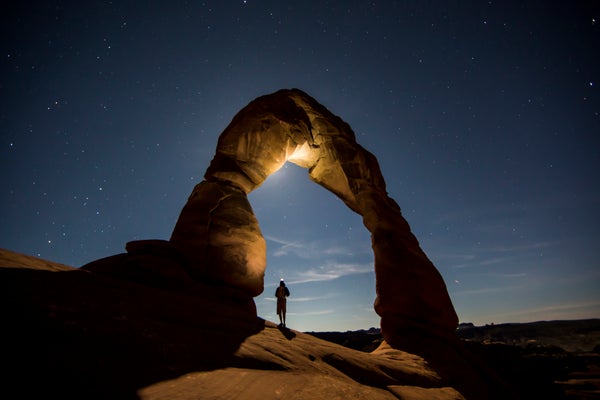This article was published in Scientific American’s former blog network and reflects the views of the author, not necessarily those of Scientific American
What’s the hardest and also the greatest part about being a scientist? Realizing that there is so much we don’t know.
As humans, we crave answers. When faced with the unknown, we demand explanations. Not understanding something is unsettling—sometimes even terrifying. Staring into the night sky can evoke a deep sense of awe, but contemplating the enormity of the universe—and just how little we know about it—can make us feel powerless, tiny and anxious.
I believe that these exact feelings—both the positive and negative—are strong motivators to pursuing science. Scientists are experts at embracing the unknown. It can embrace a sense of wonder but also of disorientation. Acknowledging what we do not know does not always feel good, but it pushes us to seek a deeper understanding of the world around us.
On supporting science journalism
If you're enjoying this article, consider supporting our award-winning journalism by subscribing. By purchasing a subscription you are helping to ensure the future of impactful stories about the discoveries and ideas shaping our world today.
I, like many others, was initially drawn to science because I found it exciting to learn about the wonders of the natural world. I became a cognitive scientist because I wanted to know how the mind works. I took my first psychology course as a senior in high school and was amazed by how much we know about the brain and human behavior. My freshman year of college, I took a course on consciousness. Each day I came to more clearly understand that we actually know quite little.
Many aspects of the mind remain a mystery to us. Scientific theories are not fact, but rather constantly under revision as we conduct further experiments. There are some aspects of the mind that we will perhaps never fully understand. Our inner experiences are inherently subjective and available only to us; only we can know what it is like to feel moved by art, to fall in love or to see the vibrant colors of a sunset. Quantifying these experiences using scientific measurement may only get us so far in explaining what it means to be human.
As I continued to learn, I saw a whole world of mysteries open up before my eyes. How do children acquire language so seamlessly? Why do emotions feel so distinctively different from other types of thoughts? What is pain? Can scientists ever fully understand these complexities of the human mind?
The more I learned, the more I realized I didn’t know. This is the funny thing about learning any given subject—be it consciousness, or something else entirely—it feels like we know a ton about it when our knowledge of that topic is merely surface level. But the deeper we get into the nitty gritty of it, we come to see that there is a great amount yet to be learned. The more we know about something, the better attuned we are to our own intellectual limitations.
People are notoriously bad at evaluating the extent to which they understand things—a phenomenon referred to as the “illusion of explanatory depth.” Most people, for example, think that they could explain how a bicycle works. But when asked to draw a bicycle, those same would put pen to paper and realize that they are actually at a loss. They know that bikes contain wheels, gears, chains and handlebars, but theyt are unable to explain how those parts are connected or give rise to a functioning whole.
People often display the same illusory understanding of scientific processes such as photosynthesis or natural selection. In high school, I approached many topics in cognitive science with an illusory understanding, but as I continued on in my studies, I developed a heightened awareness of how much I do not know.
I believe that, for many people, having to acknowledge the superficiality of their own knowledge can be a deterrent. Perhaps some people are aversive toward science because they approach it expecting to find definitive answers but actually come to realize that it involves a multitude of debates and unanswered questions. There might even be some basic personality traits that differentiate people who find this aspect of science to be off-putting as opposed to motivating.
My guess is that scientists have a lower need for cognitive closure—a higher tolerance for ambiguity and uncertainty in their environments. Would this mean that some people’s tolerance for ambiguity is what causes them to pursue an interest in science, or does the very act of participating in science cause one to find the uncertain nature of it more bearable?
I cannot answer this question. Maybe one day I will survey the personality traits of students in science courses to find out. My study might wind up providing me with few answers, it might turn out that my hypothesis was wholly incorrect, or it might be the case that the subject is tremendously more complex than I anticipated.
I do not know, and that is okay.
